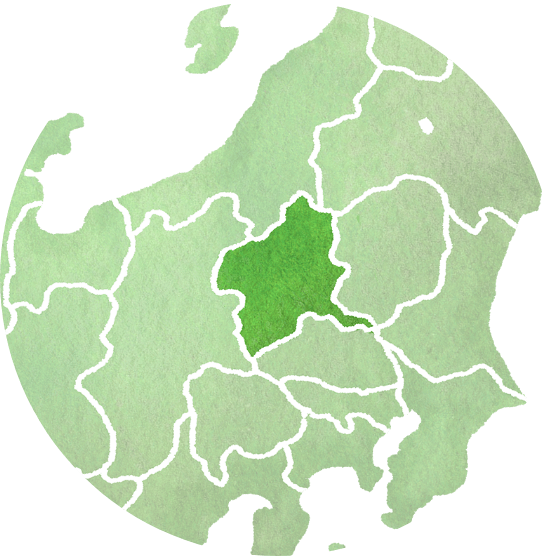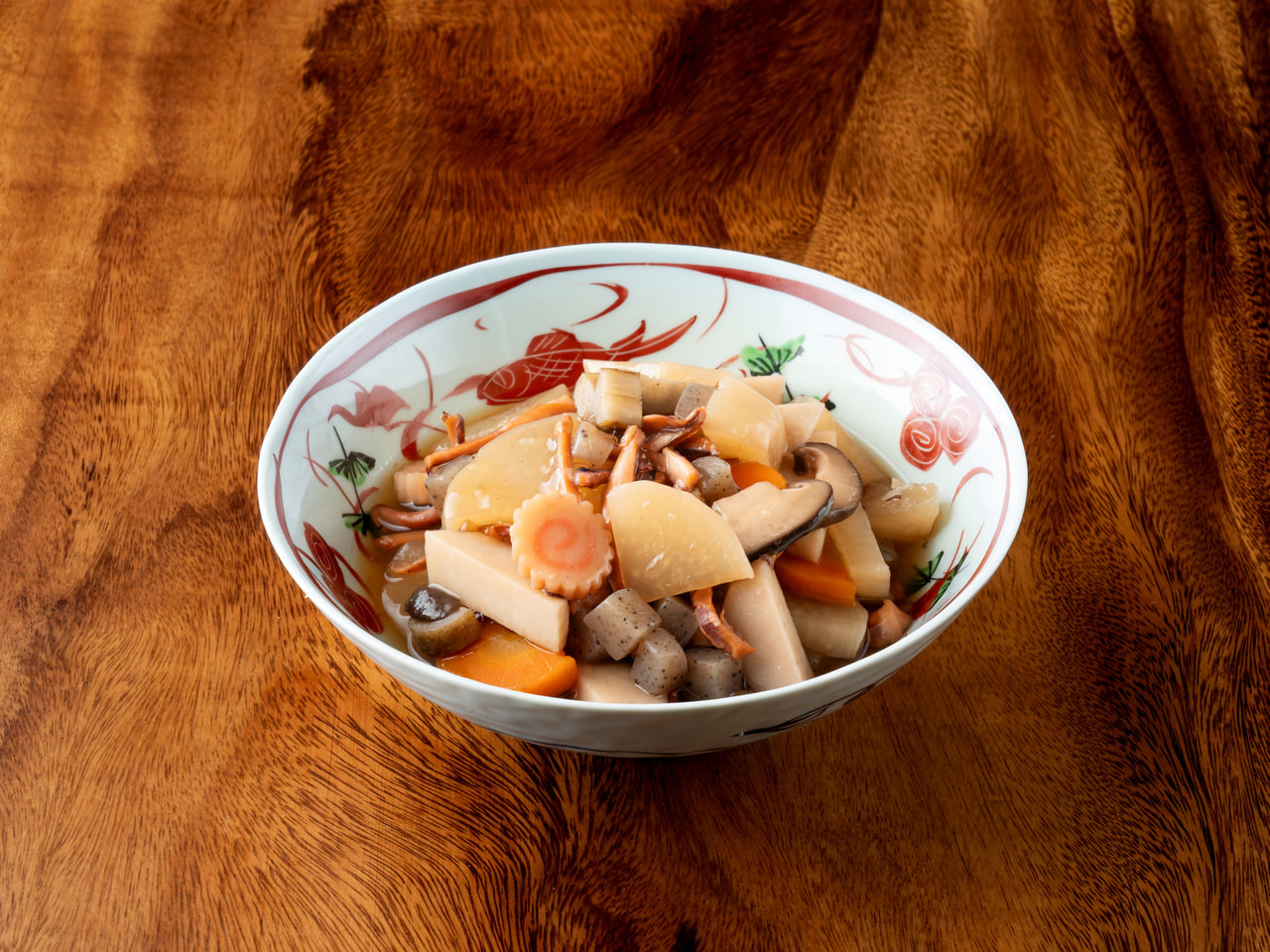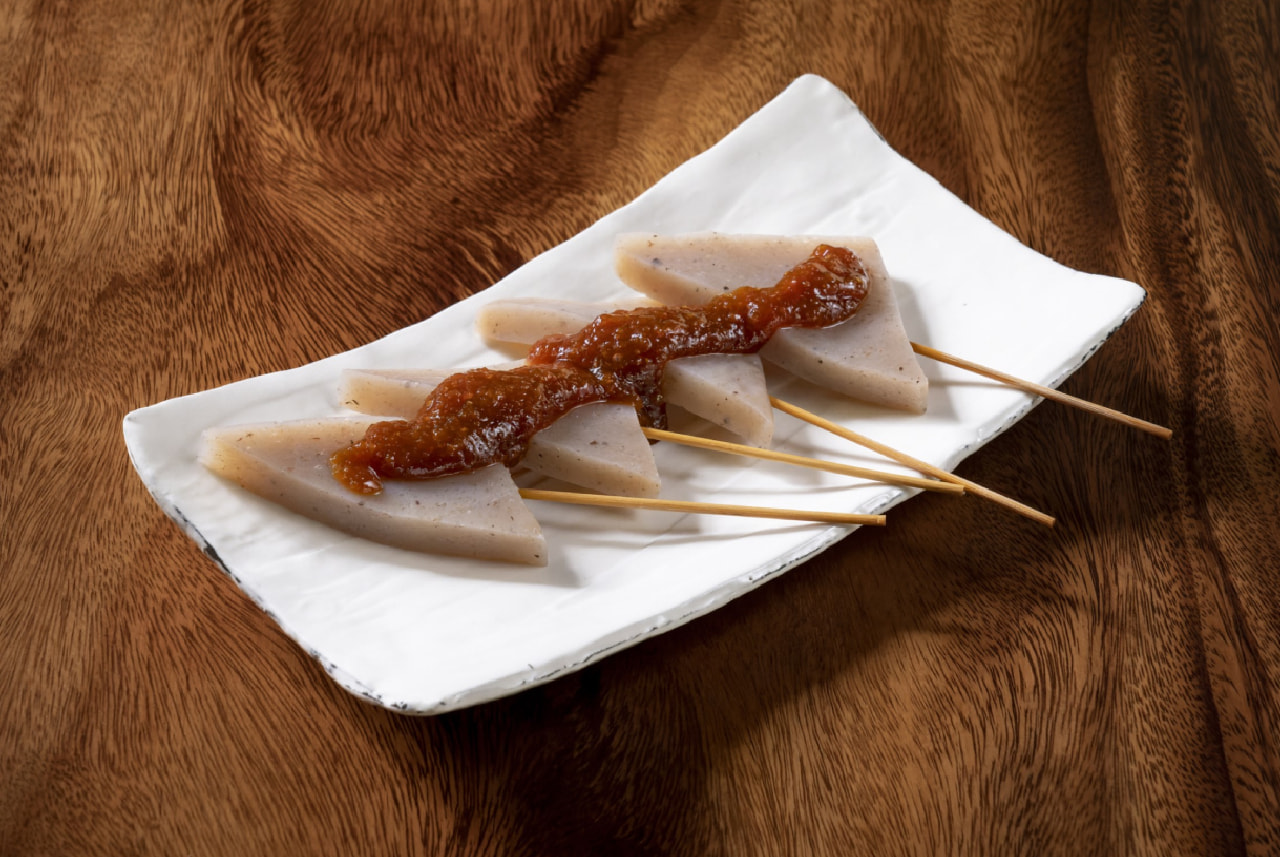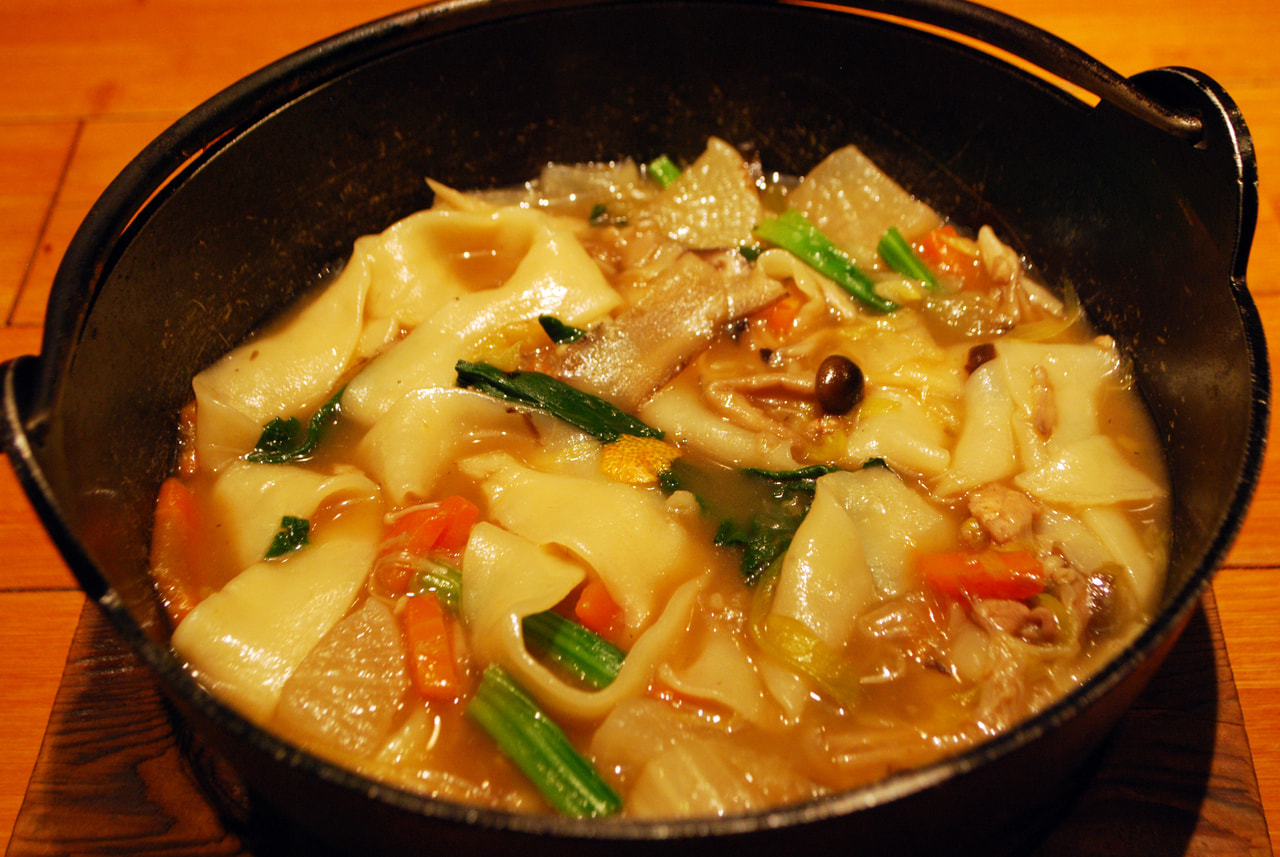Konjac miso oden is a local dish made with konjac, a specialty of Gunma Prefecture, which produces Japan’s largest crop of konjac potatoes—accounting for 90% of the national market.
After washing konnyaku, it is cut into pieces, threaded onto long sticks, boiled in plenty of hot water, drained well, and topped with miso sauce.
This dish is typically enjoyed in winter. The miso sauce varies depending on the restaurant or cook, with sweet flavors created using mirin (sweet sake), spicy flavor from yuzu (citrus), or added richness from sesame seeds.
Konjac miso oden may be simple, but it offers a deep umami from the miso. Be sure to enjoy it with plenty of miso sauce.




